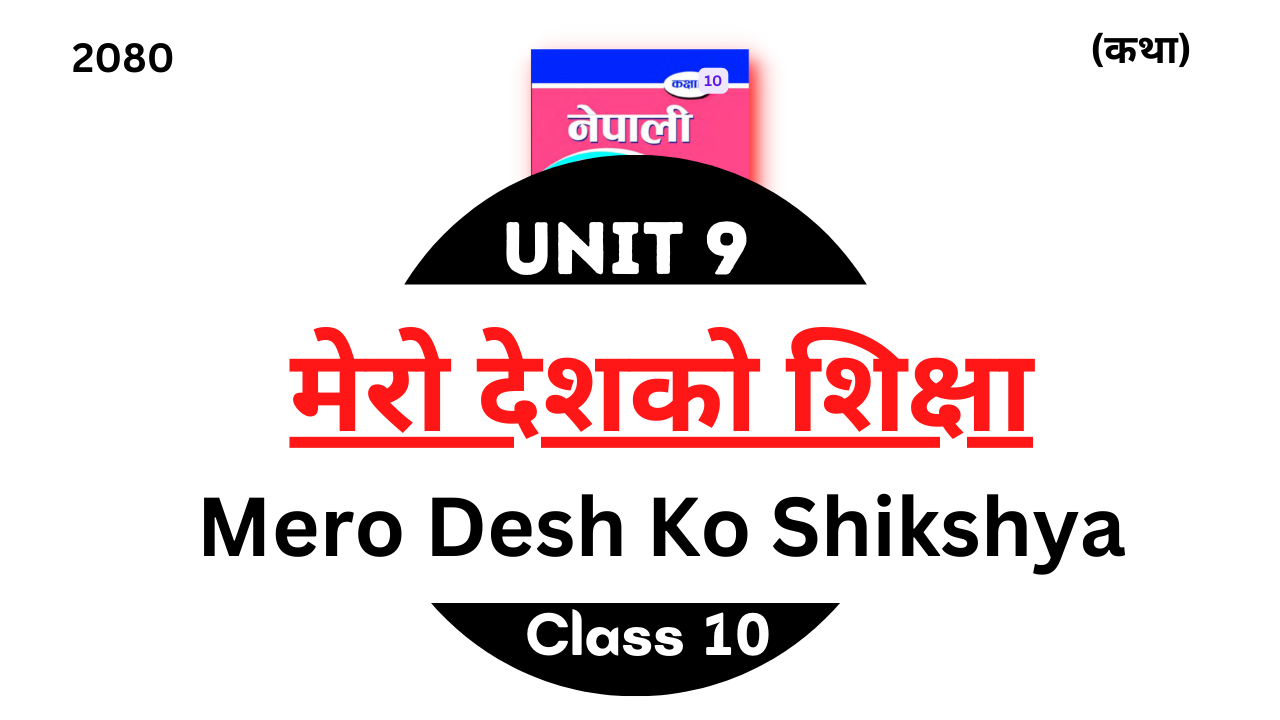Mero Desh Ko Shikshya : Chapter 9 Class 10 Nepali
Complete Exercise (Question Answer Solution), Grammar and Summary of Class 10 Nepali Chapter 9 Mero Desh Ko Shikshya Essay. CDC update course content for the year 2080 for class 10 Nepali.
Mero Desh Ko Shikshya is a Essay, Written by Books Writers of Class 10 Nepali.
Check: SEE Class 10 Model Question 2080/2081
Welcome to this exercise guide designed to help you master the intricacies of “Mero Desh Ko Shikshya,” the ninth unit of your Class 10 Nepali curriculum. This chapter delves deep into the education system of our country, offering valuable insights into its strengths, challenges, and potential for growth. As you embark on this educational journey, it’s essential to have a clear roadmap to navigate through the material effectively.
In this guide, we will provide you with a series of exercises and activities that are meticulously designed to enhance your understanding of “Mero Desh Ko Shikshya.” These exercises are intended to not only prepare you for your exams but also to foster a deeper appreciation for the subject matter.
“Mero Desh Ko Shikshya” explores the vital role of education in Nepal, emphasizing the need for a harmonious blend of traditional wisdom and modern knowledge for the nation’s development.
“Mero Desh Ko Shikshya,” a chapter in the Class 10 Nepali curriculum, is a profound exploration of the education system in Nepal. This chapter sheds light on the pivotal role education plays in shaping the future of the nation. It touches upon the strengths, challenges, and potential for growth within the education system.
The chapter emphasizes the historical significance of education in Nepal, highlighting its contributions to global knowledge and culture. It also discusses the need for a balanced integration of traditional wisdom and modern technology to promote self-reliance and self-employment among the youth.
In essence, “Mero Desh Ko Shikshya” underscores the importance of education as the “third eye” of human beings and calls for a comprehensive approach to education that combines ancient knowledge with contemporary science and technology to empower individuals and drive the nation’s progress.
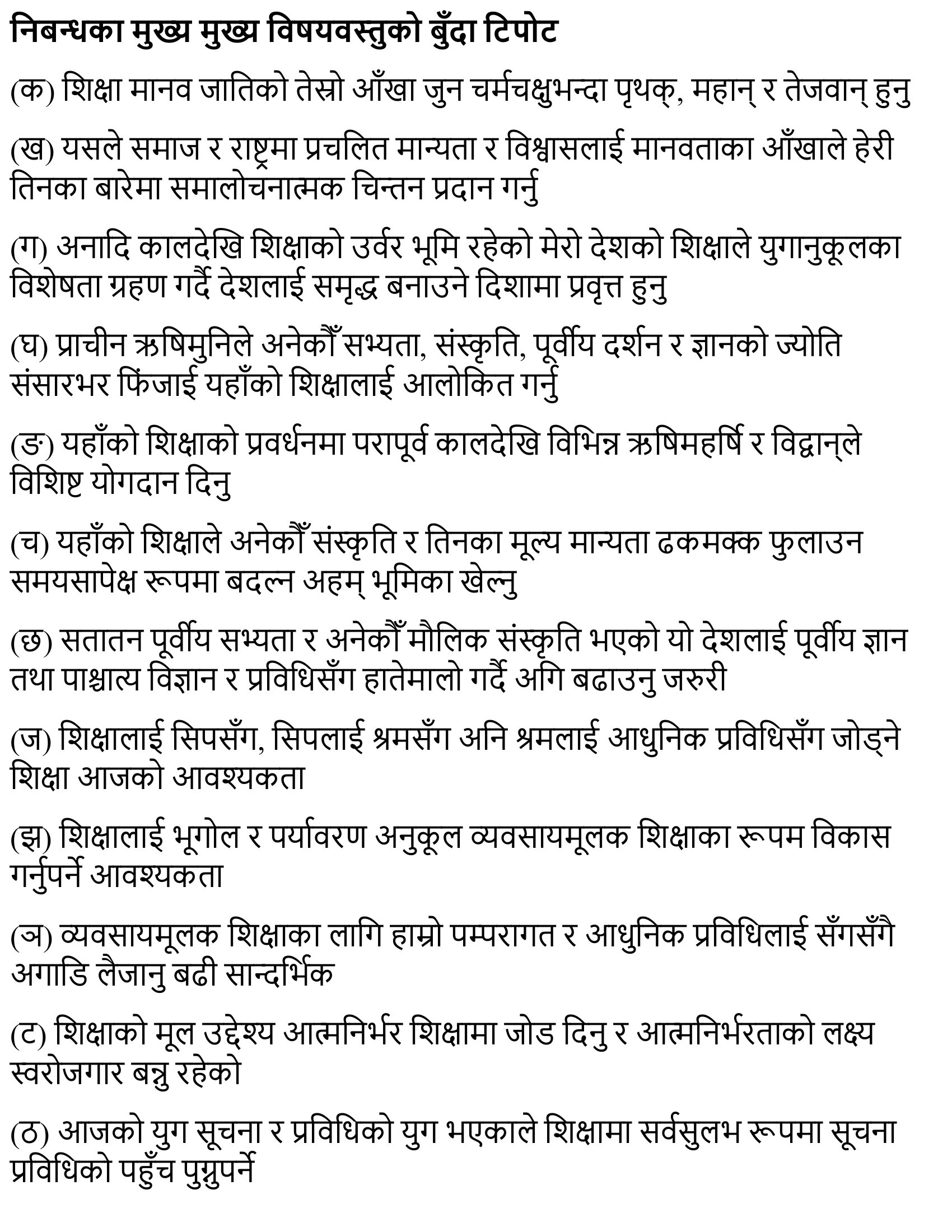
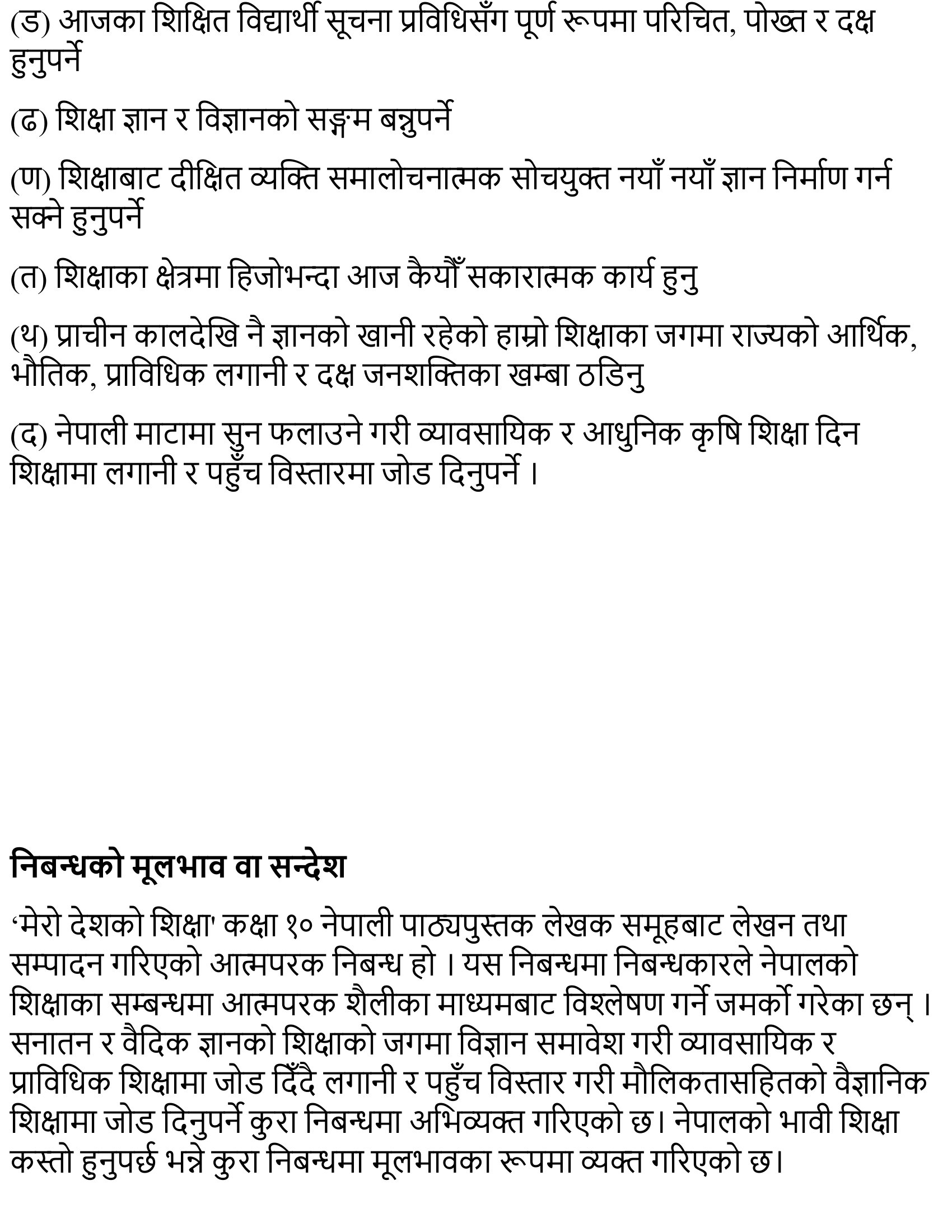
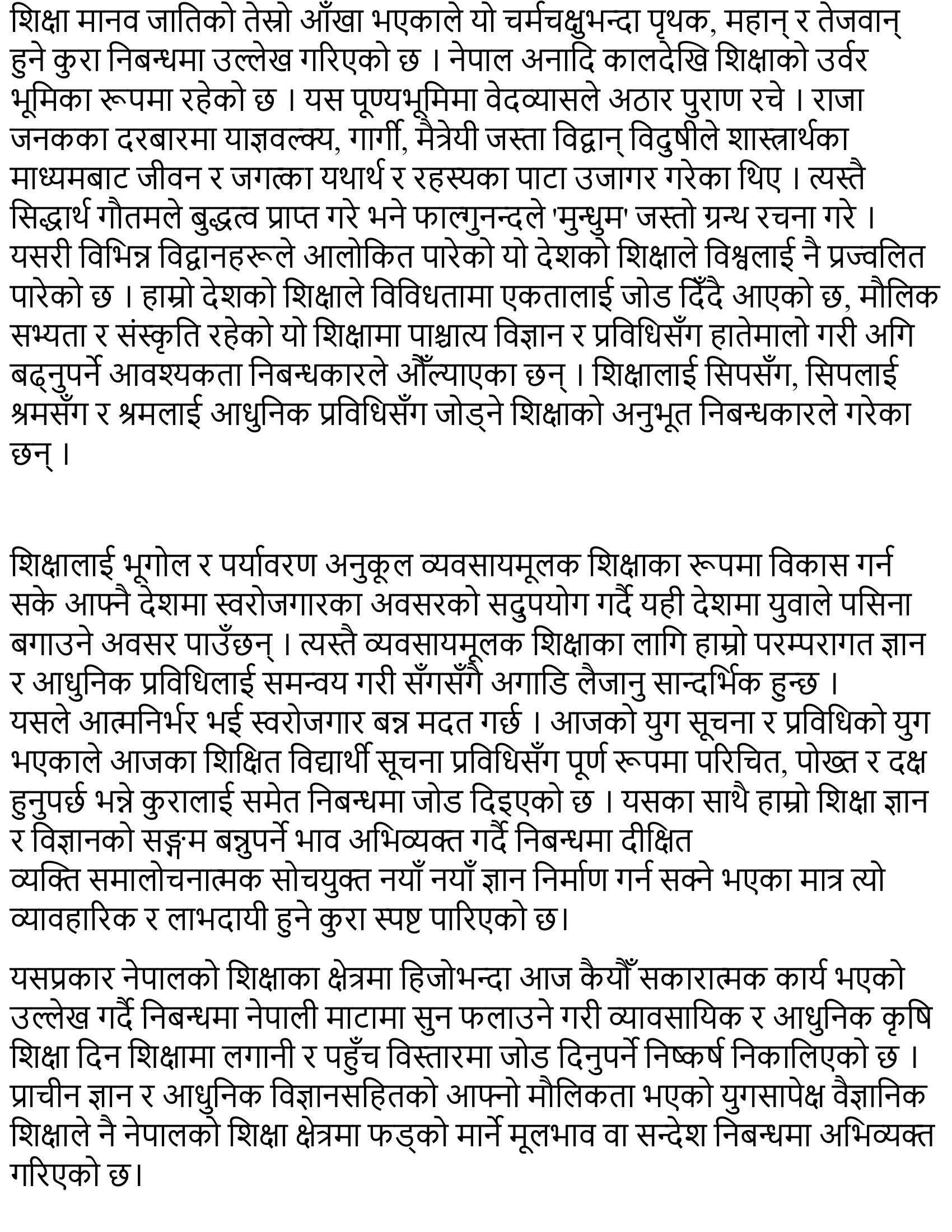
Chapter 9: Mero Desh Ko Shikshya Exercise
Mero Desh Ko Shikshya – Class 10 Nepali Chapter 9 Complete Guide Exercise.
Sabda Bhandar
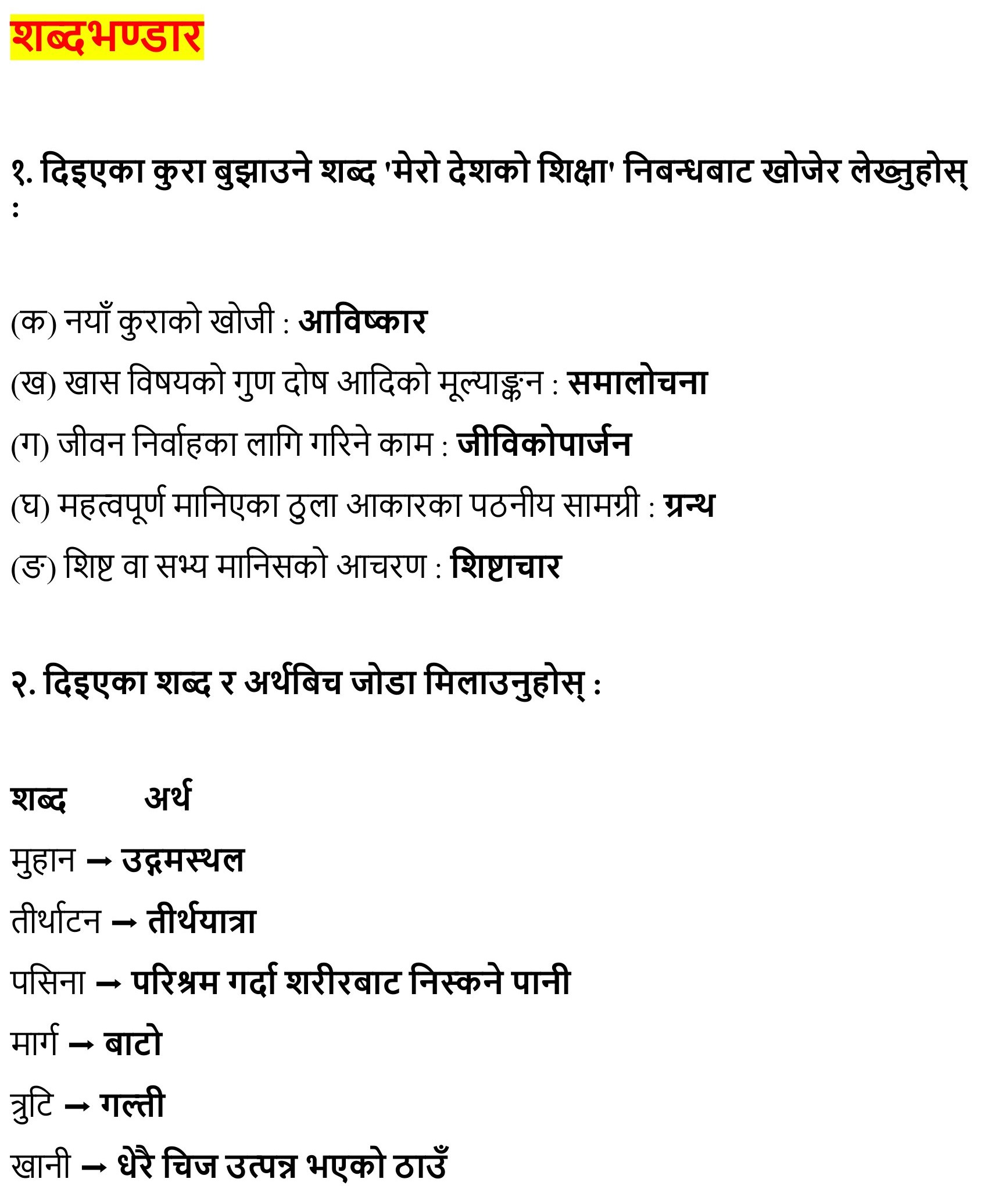
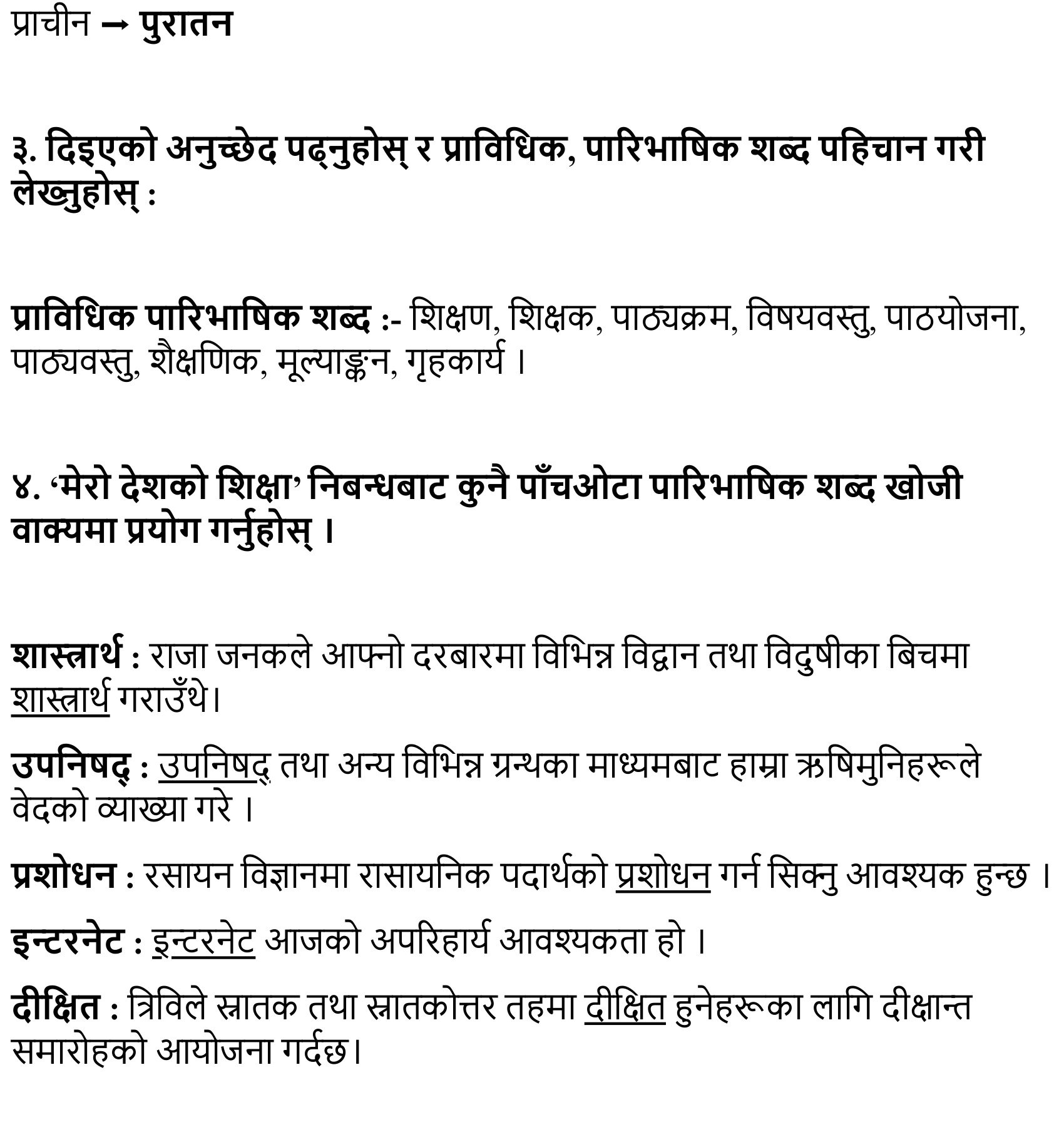
Bodh tatha abhivyakti
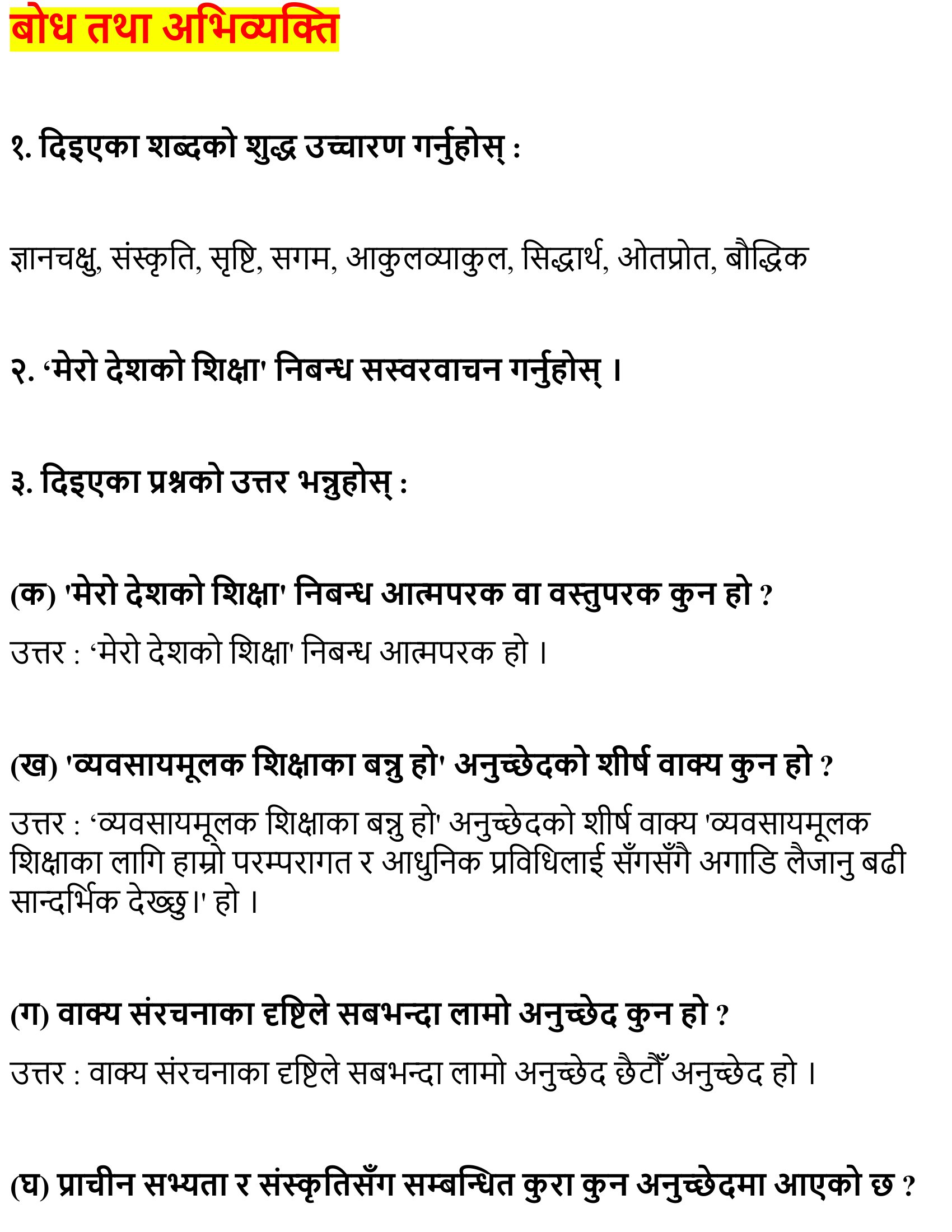
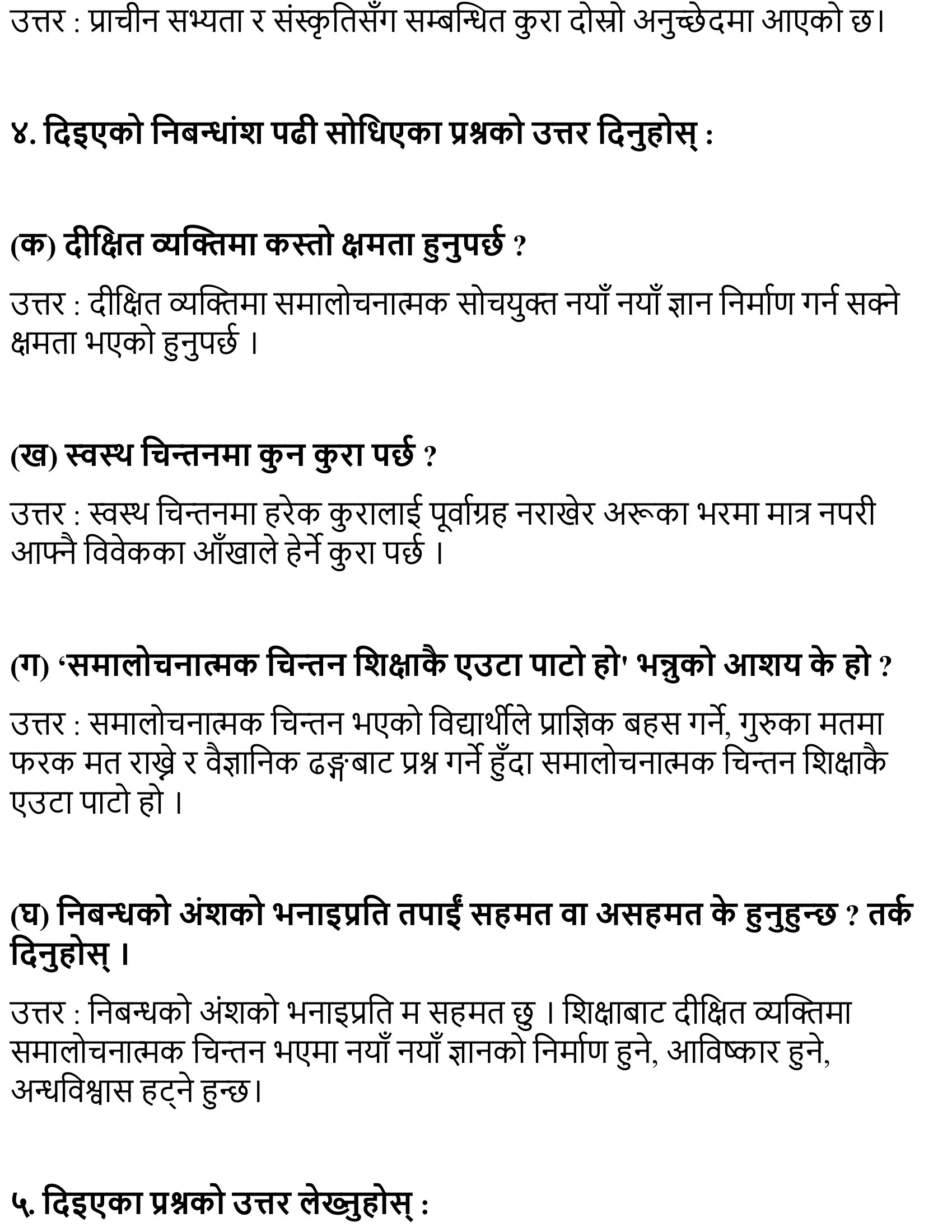
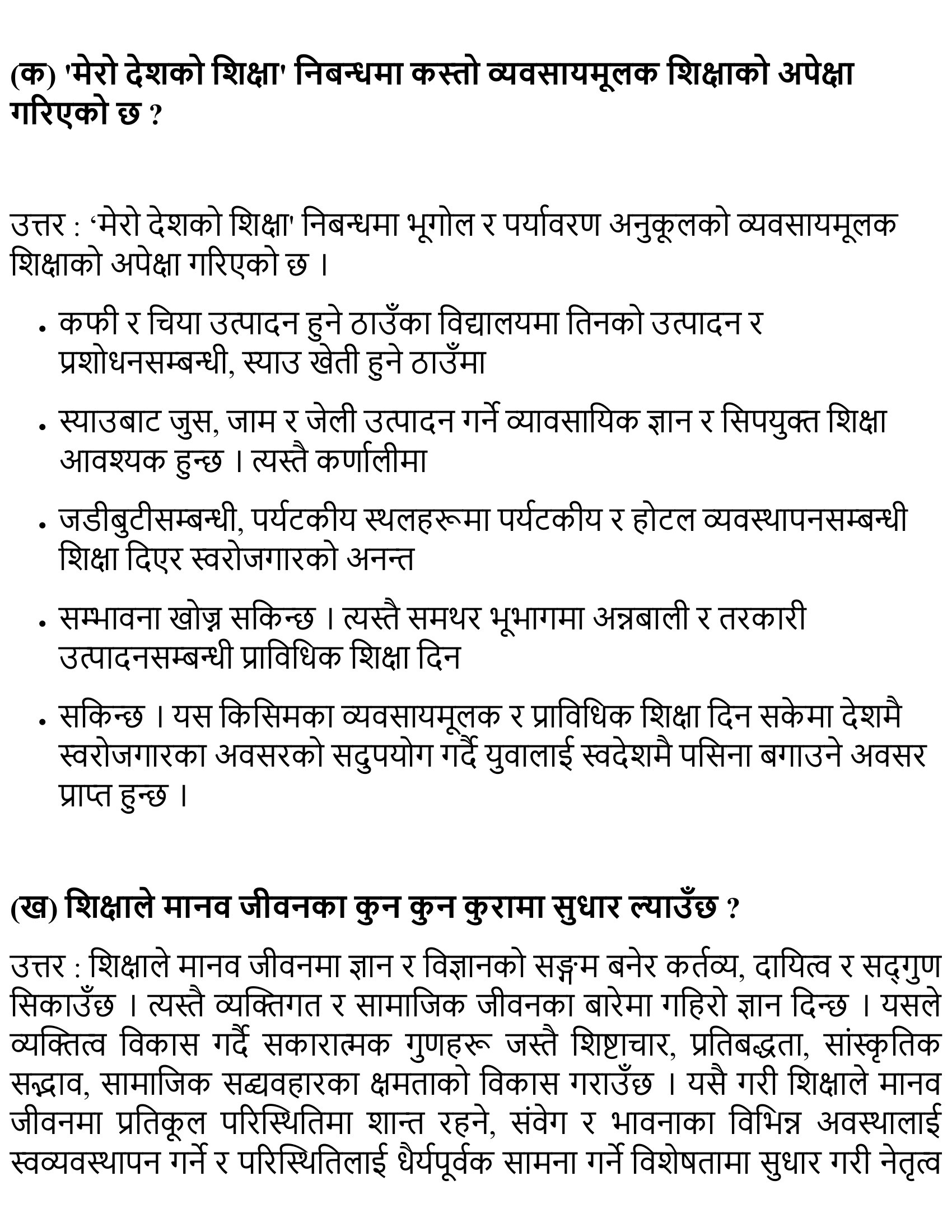
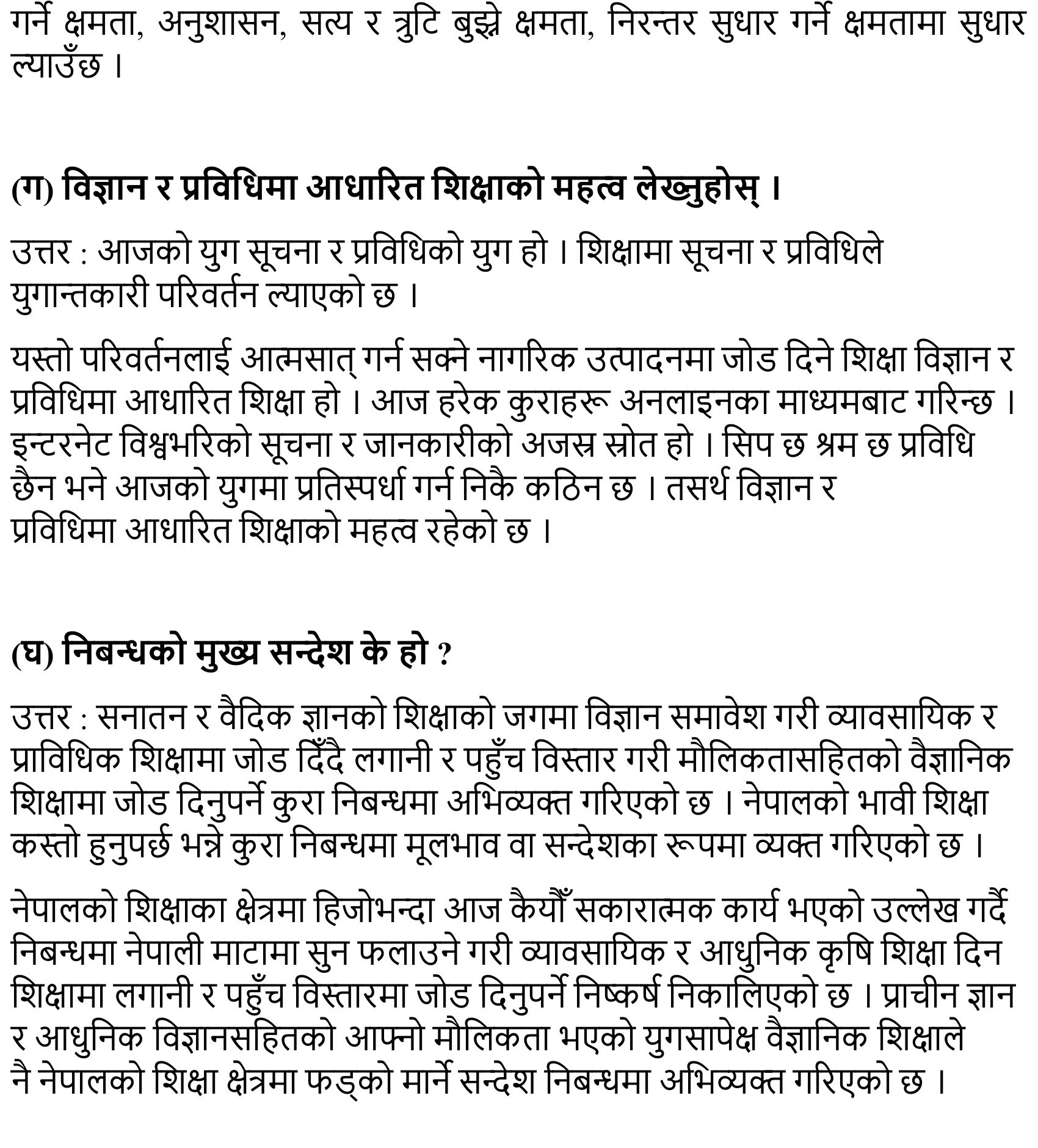
Byakhya Garnu Hos






Bhasik Samrachana ra badabinyas





Mero Desh Ko Shikshya Summary
The main theme of the essay, titled “Education of my country,” revolves around the significance and evolution of education in Nepal. The essay highlights several key points:
Education as the Third Eye: The essay portrays education as a vital and distinct element of human development, superior to the physical eye. It suggests that education provides a unique perspective on society and culture.
Historical Richness of Nepali Education: The essay acknowledges Nepal’s historical heritage as a hub of education and knowledge, where ancient sages contributed to the spread of diverse civilizations, cultures, and Eastern philosophy.
Integration of Eastern and Western Knowledge: It emphasizes the importance of merging Eastern wisdom with Western science and technology to propel Nepal forward in today’s world.
Relevance of Vocational Education: The essay underlines the need for practical, geography and environment-specific vocational education to empower youth with self-employment opportunities within the country.
Information Technology in Education: Given the modern era’s emphasis on information and technology, the essay advocates for students to be proficient in these fields.
Fusion of Knowledge and Science: It suggests that education should unite knowledge and science, encouraging critical thinking and the creation of new knowledge.
Positive Developments in Education: The essay acknowledges positive advancements in Nepal’s education sector, signaling hope for the future.
Investment in Education: The essay calls for significant investments in education, including financial, material, technical, and skilled manpower, to strengthen the country’s educational foundation.
Professional and Modern Agricultural Education: The importance of expanding access to professional and modern agricultural education is highlighted as a means of fostering growth within Nepal.
In summary, the essay conveys the message that Nepal’s education system should evolve to encompass both its rich historical knowledge and modern scientific advancements, ultimately fostering self-reliance, critical thinking, and progress within the nation.
